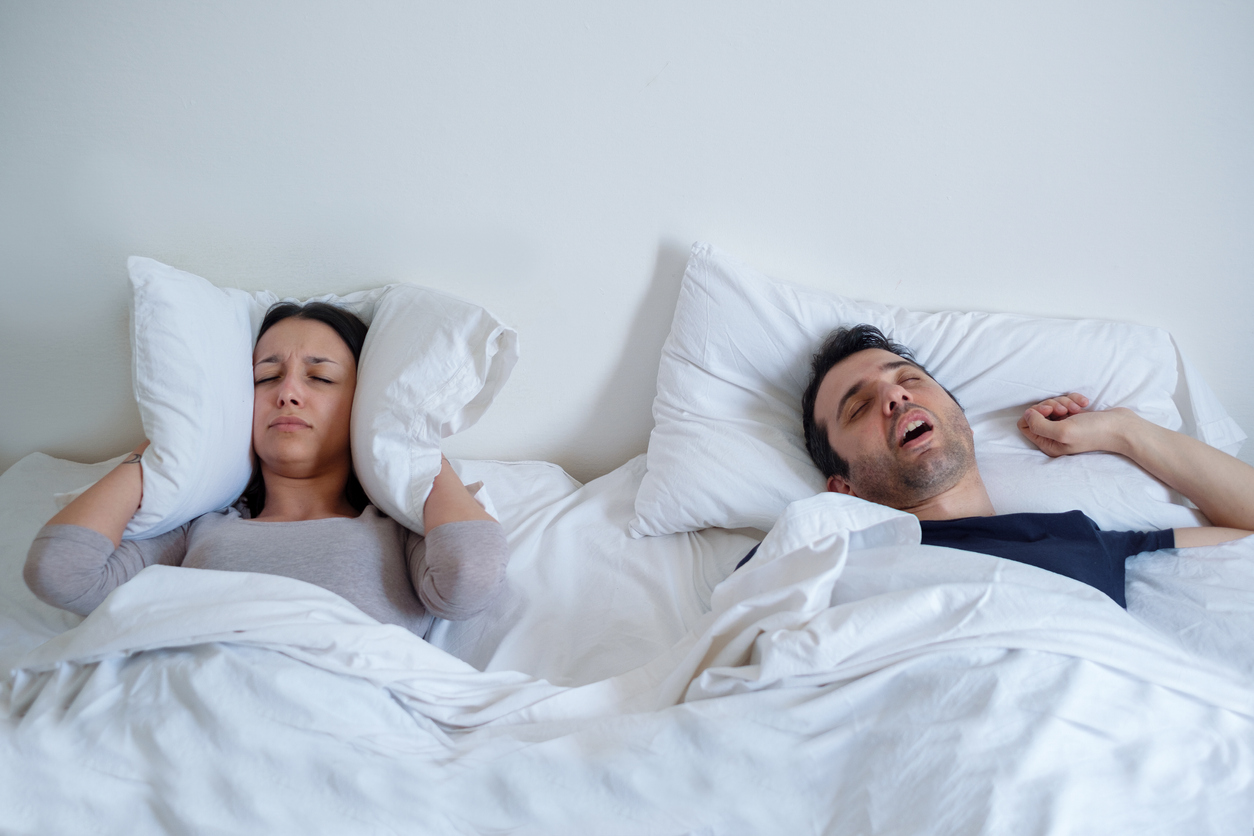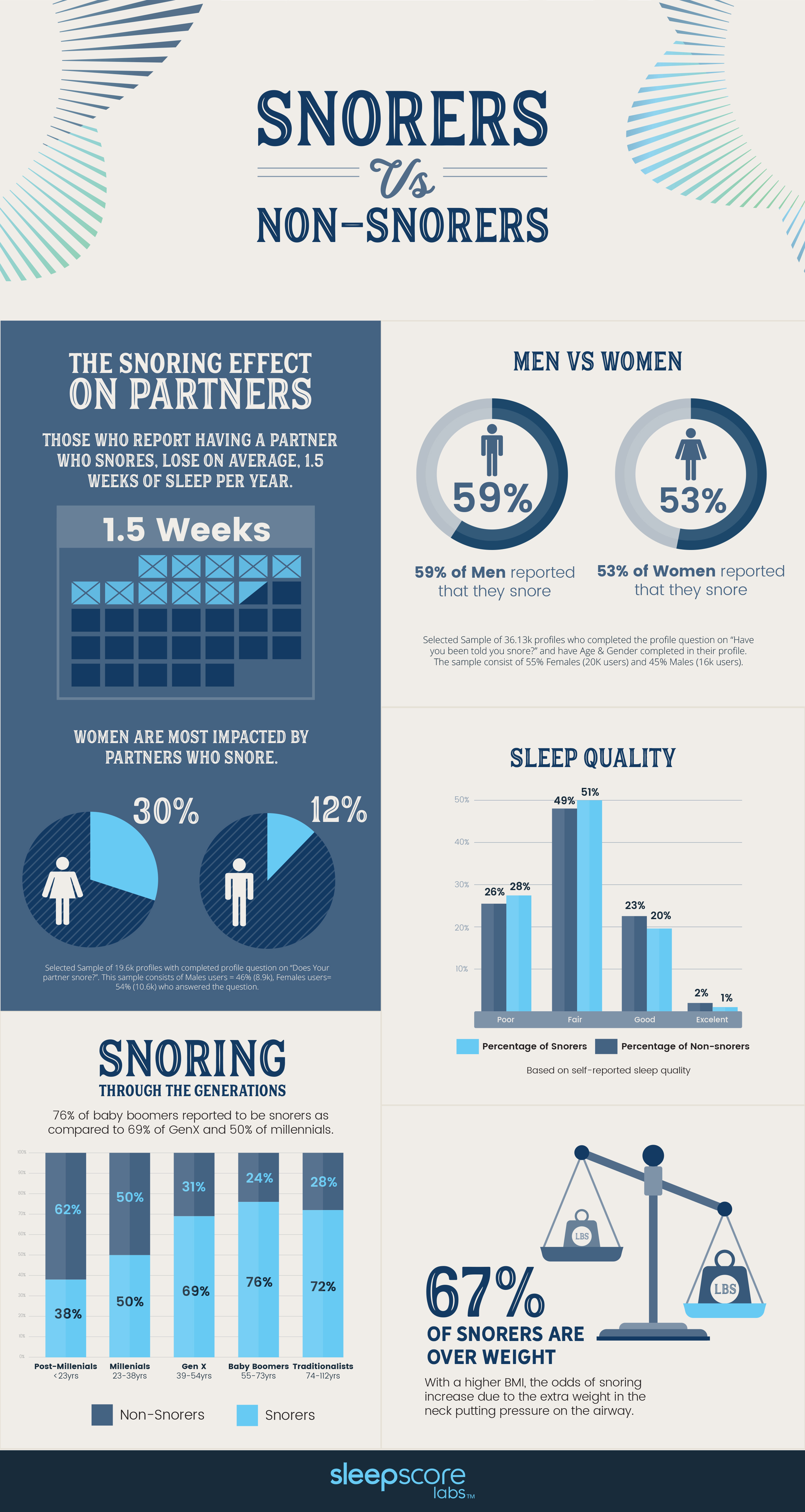SleepScore Analysis: A Deep Dive into Snorers vs Non-Snorers

Sawing logs, calling hogs, grinding gravel- whatever you call it, snoring is an annoyance no one wants to deal with, but many do. One out of three adults snore, and some studies even report numbers as high as 86% of men and 57% of women reporting snoring.1 The SleepScore Labs researchers did an extensive study of our members’ sleep patterns, focusing on those who reported they were snorers, over 36,000 members! Our findings shed new light on the existing research around snoring.
Who’s snoring?
According to SleepScore data, 56% our members report snoring. Snoring appears to be more pronounced in men compared to women.
Additionally, SleepScore data shows that snoring increases with age, with snoring prevalence exceeding 70% in age groups 40 years and older.

Predictors for snoring
Our data shows that both BMI and age can both be strong predictors of snoring. Unfortunately, the older you get and the higher your BMI becomes, the more likely you are to be snoring.
“This is typically attributed to the loss of muscle tone as we age; tissue becomes more susceptible to vibration, resulting in snoring,” notes Dr. Roy Raymann, VP of Sleep Science and Scientific Affairs at SleepScore Labs. “Similarly, with a higher BMI, you carry more weight around your neck, which can squeeze the airway and cause vibrations and snoring while you breathe.”
Are snorers sleeping worse?
Snorers in our database sleep on average 10 minutes less than non-snorers. It appears their light sleep is mostly impacted and overall, and their SleepScores suffer too, showing 1.3 points less than non-snorers.
10 minutes may not seem like a lot, but this is a statistically significant improvement. Statistical significance means that the research results are not simply due to chance. There are a wide range of factors that can impact sleep at home, from caffeine to exercise to stress, so even small consistent differences in objective sleep are meaningful.
Partner snoring
Often times, it’s the snorer’s bed partner that has to deal with the consequences of snoring. Our data shows that it’s usually women who report having a bed partner that snores. If we assume that their bed partners are male, it aligns with our data findings that snoring is more prevalent in men.
What can you do to curb snoring?
If you or a partner suffers from snoring, you don’t have to suffer in silence (or in your case, in perpetual noise).
You can take the SleepScore Snore Quiz to quickly find out what kind of snorer you are and what kind of products would work best for you. Many people don’t know that there are a variety of different snoring types, meaning there are different anatomical factors that may be contributing to your snoring. You may be a nose snorer, tongue snoring, mouth snorer, or another combination, and each kind needs a different solution. The SleepScore Snore Quiz can help you easily find out what kind you might be, so you can make smarter buying decisions to reduce your snoring and get the sleep you need.
There are also lifestyle changes you can try, such as getting more active to lose weight, staying hydrated throughout the day, or working on exercises to strengthen your throat muscles.